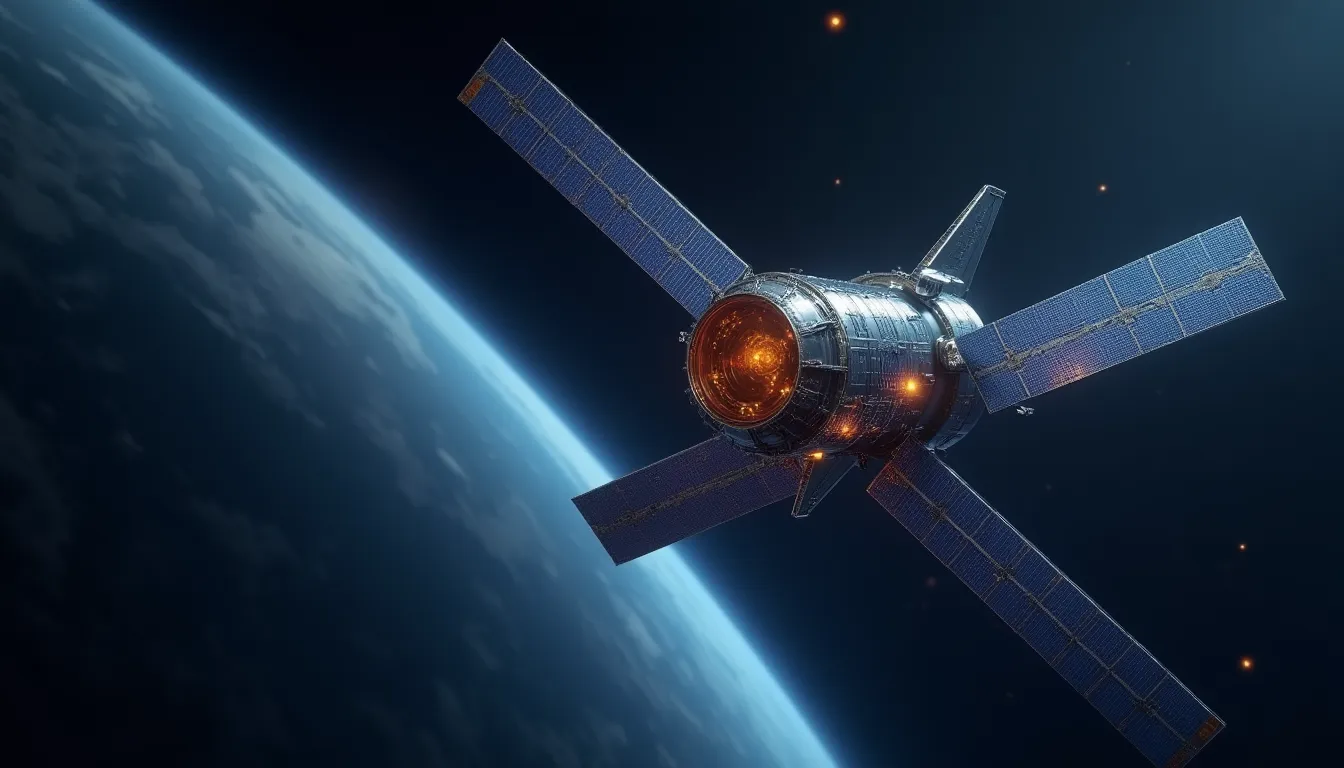Recent advancements in the satellite sector are reshaping the aerospace, defense, and technology landscapes. From significant satellite deployment initiatives to regulatory reforms designed to streamline operations, the industry is witnessing transformative changes that promise to enhance global connectivity and security. This article delves into the latest developments in satellite deployment, sovereign satellite infrastructure, regulatory reforms, and the intersection of commercial and defense needs.
Satellite Deployment and Launch Services
Exolaunch, a prominent global launch integrator, is set to enhance its operational footprint with the Bandwagon-4 mission, scheduled for launch aboard a SpaceX Falcon 9 rocket from Cape Canaveral Space Force Base no earlier than November 2025. The mission will deploy 13 customer satellites, which include cubesats and microsatellites dedicated to Earth observation, IoT applications, and technology demonstrations. Notably, customers hail from countries including Argentina, Czechia, Finland, the Netherlands, Turkey, and the United States.
Utilizing its CarboNIX separation systems and modular deployers, Exolaunch aims to ensure precise deployment and safety for these satellites. This mission marks Exolaunch’s continued growth trajectory in 2025, following the successful completion of eight missions deploying 125 customer satellites. With the increasing need for satellite infrastructure for various applications, such as advanced navigation systems relying on MEMS accelerometers, the demand for efficient launch services is expected to soar.
Sovereign Satellite Infrastructure and Strategic Partnerships
As nations strive to bolster their space capabilities, Saudi Arabia has embarked on a significant initiative through a $640 million, five-year contract with iRocket, a U.S.-based launch company. This partnership aims to facilitate up to 30 orbital launches to develop a low-Earth orbit (LEO) satellite network tailored for secure internet and data transmission across Saudi Arabia and the Gulf Cooperation Council (GCC) region.
This ambitious project aligns with Saudi Vision 2030, which emphasizes the importance of building sovereign space infrastructure, enhancing technological self-reliance, and improving defense and economic security through an independent, encrypted satellite communications network. Such initiatives underscore the growing trend towards national sovereignty in space capabilities, paving the way for nations to control their own satellite infrastructure.
Regulatory Reforms to Accelerate Satellite Licensing
In a move designed to stimulate growth in the satellite industry, the U.S. Federal Communications Commission (FCC) has initiated a comprehensive overhaul of its satellite licensing processes. The agency is shifting from bespoke approvals to a streamlined “licensing assembly line,” aiming to replace the default “no” with a default “yes” for satellite licensing requests. This reform is particularly pertinent in the context of the burgeoning competition with China in low Earth orbit and other orbital regimes, dubbed Space Race 2.0.
The FCC’s reforms are expected to significantly accelerate the deployment of satellite constellations, including SpaceX’s Starlink. With these changes, satellite operators can expect quicker approvals, facilitating innovation and deployment across the commercial satellite sector. This environment is ripe for companies leveraging advanced sensor modules, such as 9-DOF MEMS IMUs, which integrate multiple motion sensing capabilities, enhancing the performance of satellite systems.
Industry and Defense Integration: The Golden Dome Initiative
The Golden Dome initiative represents a pivotal shift in how the commercial satellite industry interacts with defense needs. This initiative promotes investment from the U.S. government into commercial satellite firms, particularly focusing on Earth observation, secure communications, and anti-jamming technologies. While this collaboration fosters innovation that benefits civilian applications—including disaster response and precision agriculture—it also raises concerns regarding the militarization of space and the potential for an arms race.
As commercial satellite technologies advance, the dual-use nature of these technologies necessitates a balanced approach to policy. The increased deployment of satellites could lead to greater congestion in space and heightened risks associated with debris. Thus, stakeholders must prioritize sustainability and responsible practices in the development of satellite infrastructure.
Conclusion
The landscape of satellite technology is rapidly evolving, driven by innovative deployment strategies, regulatory reforms, and strategic partnerships. As countries like Saudi Arabia invest in their sovereign satellite infrastructures, and as U.S. regulations adapt to encourage growth, the future of the satellite industry appears bright. However, as the lines between commercial and defense applications blur, it is crucial to navigate the associated challenges responsibly. The advancements in satellite technology not only promise enhanced connectivity and security but also require a commitment to sustainability and ethical considerations in space operations.
As we look forward to the next era of satellite deployment and utilization, industry stakeholders must leverage cutting-edge technologies, including high-performance lithium niobate optical chips and advanced APD quadrant modules, to ensure the continued success of satellite initiatives in an increasingly complex global environment.
References
- The SpaceBelt KSA-iRocket deal marks Saudi Arabia’s next leap into space (www.atlanticcouncil.org) - 10/7/2025 *Saudi Arabia’s space sector is entering a new chapter with the announcement of a significant partnership between the Saudi-based space logistics and satellite security platform SpaceBelt KSA and the US launch company iRocket.
In August 2025, SpaceBelt KSA signed a $640 million, five-year contract w…*
-
FCC vows to fast-track satellite licensing in Space Race 2.0 (www.theregister.com) - 10/7/2025 The FCC’s processes are set for an overhaul, with bespoke licensing being ditched in favor of what Carr called “a licensing assembly line” and a …
-
The Golden Dome Initiative: A New Era for the Satellite Industry (www.satellitetoday.com) - 10/7/2025 The satellite industry, once the exclusive playground of superpowers and select multinational corporations, is undergoing a seismic shift.
-
Exolaunch to Deploy 13 Customer Satellites on the Bandwagon-4 … (www.exolaunch.com) - 1/1/2025 In 2025 alone, Exolaunch has completed eight missions for 125 customer satellites across multiple global launch vehicles, representing the …



